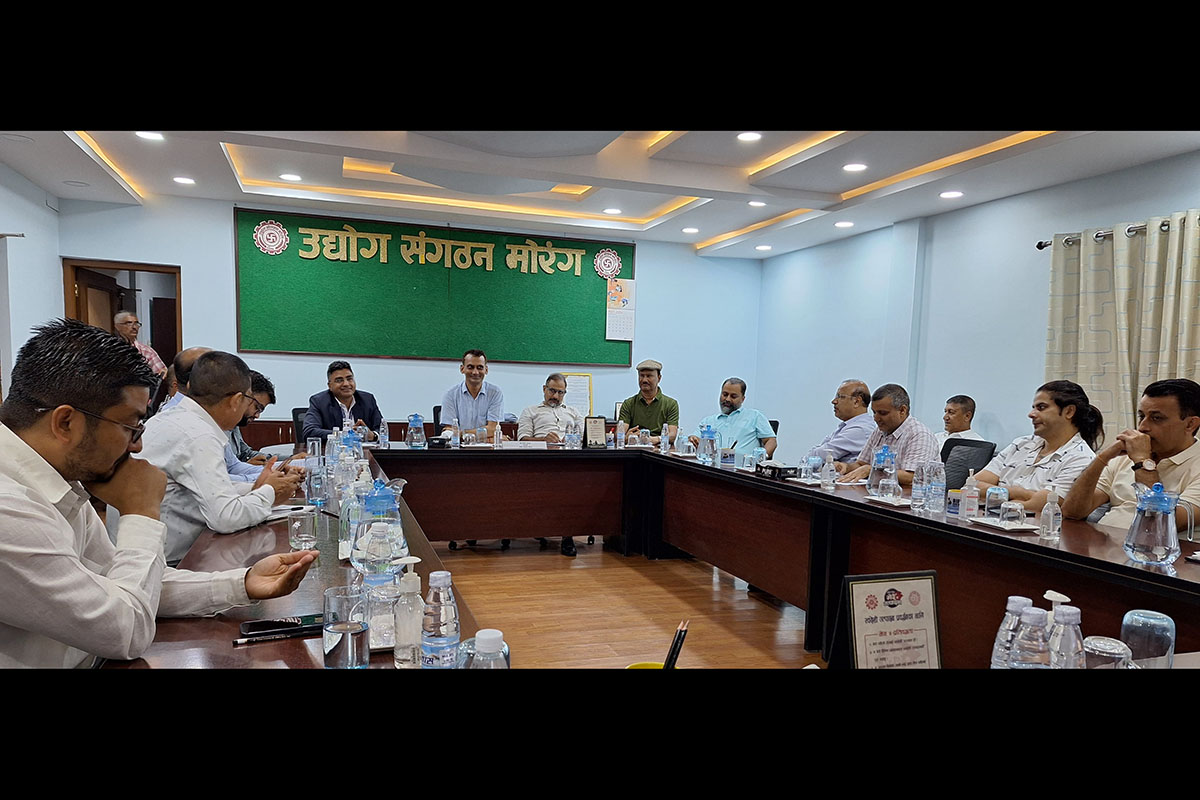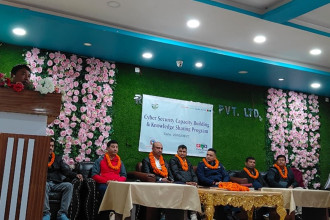
BIRATNAGAR: Chamber of Industries Morang (CIM) recently organised a programme to discuss the monetary policy for fiscal year 2024/25, announced by Nepal Rastra Bank (NRB).
During the event, industrialists, bankers, and chartered accountants examined the potential impacts of the new monetary policy on the economy. CIM President Rakesh Surana emphasised that despite sufficient liquidity in banks, the laxity in credit flow necessitates extending the provision of Variance Analysis in the Working Capital Loans Guidelines from 16 July 2025, specifically for micro, domestic, small, and medium industries. He noted that removing the Rs 200 million cap on share mortgage loans would help stimulate the economy.
Surana also praised NRB's commitment to establishing an Asset Management Company to manage passive and non-banking assets of banks and financial institutions (BFIs), reducing the upper limit of the interest rate corridor from 7% to 6.5%, and lowering the policy rate from 5.5% to 5.0%. He appreciated the regulatory measures to address complaints from microfinance institutions and protect customer interests.
However, Surana expressed concerns over the policy's silence on regulating loan transactions and addressing issues faced by large manufacturing industries. He suggested reviewing existing credit information and blacklisting instructions, particularly regarding the blacklisting and banking transaction bans for cheque dishonour as outlined in Article 83. He advocated for similar leniency for manufacturing industries as provided to banks and construction entrepreneurs.
Santosh Budhathoki, President of the Nepal Bankers' Association Koshi Province and Provincial Head of NMB Bank, opined that the policy would benefit the construction sector and stock market. He hoped for NRB circulars to boost loan demand amid economic recession.
Dinesh Kumar Pokharel from Saptakoshi Development Bank emphasised the policy's focus on maintaining economic stability and increasing market demand, considering the potential decrease in consumer demand due to emigration.
Chartered Accountant Tirtha Yadav criticised the policy for not addressing job creation and not providing immediate relief to large industries, which are crucial for new job creation. He urged the inclusion of such measures in the policy.
CIM Immediate Past President Suyash Pyakurel welcomed the regulation of the microfinance sector in the monetary policy, expressing optimism compared to previous policies.
CIM Senior Vice-President Nanda Kishor Rathi and Vice President (Employer Sector) Bipin Kabra voiced concerns about the policy facilitating youth emigration and stressed the need for policies that protect both banks and industrialists.
The programme saw participation from CIM executive committee members, industrialists, the director of NRB Koshi Directorate, heads of various BFIs, chartered accountants, and other stakeholders.
READ ALSO:






